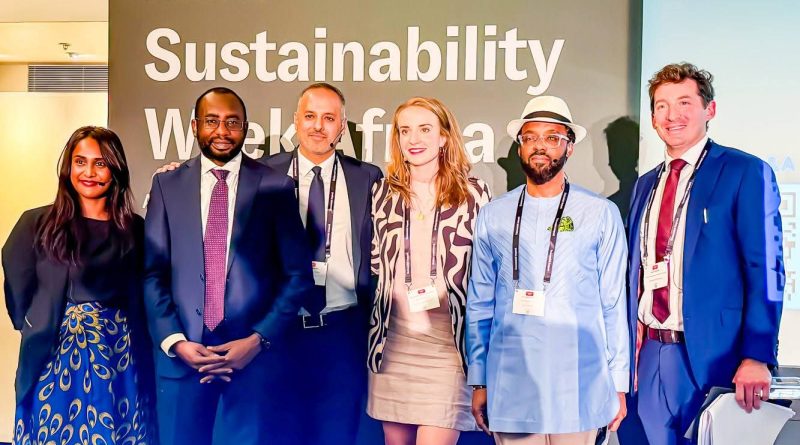NITDA DG Urges Africa to Invest in Digital Infrastructure for Economic Growth
NITDA DG Urges Africa to Invest in Digital Infrastructure for Economic Growth
By Alabidun Shuaib AbdulRahman
The Director-General of the National Information Technology Development Agency (NITDA), Kashifu Inuwa, CCIE, has called for massive investment in Africa’s digital public infrastructure, describing it as the bedrock of the continent’s economic transformation, job creation, and intra-African trade.
Inuwa made the call while speaking at the 2nd Annual Sustainability Week Africa held at The Westin, Cape Town, South Africa, where he joined a panel discussion on Digital Infrastructure for Jobs and Trade in Africa.
The NITDA boss emphasised that the continent’s economic destiny rests on its capacity to develop indigenous computing power and reduce reliance on foreign data processing systems.
READ ALSO: Tinubu Unveils NINAuth App, Says Credible Identity System Key to National Growth
“In the 21st century, compute power is a primary factor of production, and we cannot rely on exporting our raw data to other regions to process it and build products for us,” Inuwa said.
According to him, Africa must prioritise building its own computing infrastructure to attain digital independence and competitiveness in the global economy.
He explained that digital public infrastructure (DPI) functions at two levels, the shared physical and technical layer, which includes connectivity and cloud capacity; and the functional layer, which encompasses digital identity, payment systems, and data exchange platforms that enable citizens and businesses to access public and private services seamlessly.
The NITDA DG drew parallels with Europe’s collaborative model in developing high-performance supercomputers and AI factories, urging African governments to create policy incentives that encourage private sector participation in digital infrastructure development.
“A forceful investment in local digital public infrastructure is the critical step to unlock sustainable transformation and drive meaningful growth across the continent,” he added.
Outlining Nigeria’s progress in the digital space, Inuwa disclosed that more than 130 million Nigerians have been enrolled under the National Digital Identity System, while efforts are ongoing to establish a National Data Exchange Platform and a DPI Centre of Excellence to promote interoperability and best practices across all tiers of government.
He noted that these initiatives, spearheaded by the Minister of Communications, Innovation and Digital Economy, Dr. Bosun Tijani, could serve as models for other African countries in designing digital ecosystems that reflect local realities.
“The Minister is leading efforts to establish a DPI Centre of Excellence where people can build data exchange systems, develop APIs, and set best practices for digital infrastructure management,” he said.
On digital literacy, Inuwa reaffirmed Nigeria’s commitment to achieving 95 per cent digital literacy by 2030 and 70 per cent by 2027 under the National Digital Literacy Framework.
He said digital skills are now mandatory for students and civil servants, with training programmes being rolled out in partnership with organisations such as Cisco and the National Youth Service Corps (NYSC).
He said these efforts are designed to equip youth, women, and market traders with digital and AI-powered skills to enhance productivity and expand economic opportunities.
Inuwa further called for clear policy frameworks to guide the adoption of Artificial Intelligence (AI) and technology development across Africa, insisting that digital transformation should be viewed not as a standalone sector but as a strategic enabler for every sector of the economy.
“In Africa, we need to build our digital circuits for self-determination. We should not depend on other nations to send hardware or software to us. Our goal is to build a better life for our citizens, and technology will help us achieve that,” he noted.
The NITDA DG also stressed the need for stronger collaboration among governments, the private sector, and development partners to harmonise digital standards and scale innovation across the continent.
“Africa’s advantage lies in our ability to leap, to build collaboratively, and to design technology for inclusion. If we build the digital rails together, our youth will drive Africa straight into the heart of the global digital economy,” he added.




